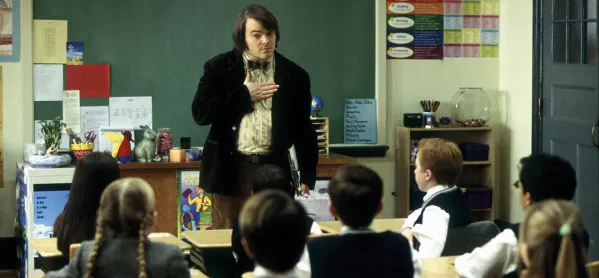
- Home
- Book review: The Great Exception by Ian Stock
Book review: The Great Exception by Ian Stock

I began reading this really rooting for the author. As a teacher for more than 30 years, Ian Stock has first-hand experience of the effects of successive policy changes at local as well as national level.
The Great Exception ends up being a fairly comprehensive meander through the big issues of the day: accountability, autonomy, ethics, pedagogy and the ultimate purpose of education.
Stock is a thoughtful, experienced and informed teacher, sharing his views, reflections and observations. He draws on research and ideas from within education and also from the fields of leadership and psychology. He also draws on his lived experience of some of the extremes of policy - seemingly when implemented at local level without much subtlety. As such, he gives a perhaps under-represented view on our system.
There is plenty to agree with. In skirting the traditional-versus-progressive dichotomy, the author is clear that the future has to lie in a careful mix of the two. Or, in relation to the implications of Ofsted: “institutional agendas are just as likely to be the consequence of a schools’ need to conform to externally-defined, ideologically-driven demands - particularly those of the inspectorate - as any notion of individual needs”.
The worst-case scenario experiences sit alongside positive ideas for better leadership approaches, based on capacity building, motivating and supporting innovation and autonomy. These are well-rehearsed, yet important concepts.
Authenticity and the primacy of relationships are recurring themes. I like the extension of the teacher-pupil relationship into that of teacher-teacher or teacher-manager. This speaks to a more expansive view of what teaching is and the ethical dimension of leadership.
Rather than a mechanistic view of what makes a great teacher, Stock identifies a series of qualities (having integrity, being educated, being altruistic and so on).
Blurring and battering
While I like the emphasis on integrity and ethical considerations, I found this an unhelpful blurring of the lines between pedagogy and professionalism. There are professional qualities we want in our teachers, but there are some very specific skills needed on top of those to develop our craft.
However, the “teacher-eye” view means managers, as well as government, take a battering. The criticism levelled at those involved in devising and implementing policy can be a bit hard to stomach, especially accusations such as “This [resistance to critique] has perhaps been exacerbated by the tendency of would-be managers to seek such positions ever younger. This can only shorten the time they spend acquiring the depth of experience necessary for such roles, and hence increases the likelihood of their ‘pulling rank’ as a means of asserting their authority, in preference to more subtle approaches.”
Stock picks out a few individuals for criticism - but if we are critical of the high-stakes accountability that drive unhelpful behaviour, we have to take care not to be part of the problem.
He concentrates on the teacher and their role, as opposed to the students: “[Teaching] is, primarily, a liberating, diversifying process, not a constraining one. There is even a democratic dimension to the need and right of the individual teacher to teach as they best judge.”
I felt concerned about how children from disadvantaged backgrounds would fare in this world: the emphasis on student interests and agency can fall short when supporting those with multiple complexities.
Despite a dislike of “big data”, I think we have a responsibility to face the reality of inequalities, which remains stark. This line, for example, I can only disagree with: “The drive to maximise ‘student outcomes’ (for which, read profits) reeks of ‘enough is never enough’ greed and skewed ambition.”
Stock sees his target audience as teachers with limited experience, “whose concerns are likely to be elsewhere entirely, and who may be more inclined to accept the status quo they encounter”. So perhaps I am not the ideal reviewer.
However, his personal story gives a poignant edge to this book. One is left with the heartfelt reflections of a passionate, committed teacher who cares about the craft of his profession - and the students he has taught over many years.
Liz Robinson is co-head at Surrey Square Primary School, London. She tweets @LizzieRobinson3
Register with Tes and you can read five free articles every month, plus you'll have access to our range of award-winning newsletters.
Keep reading for just £4.90 per month
You've reached your limit of free articles this month. Subscribe for £4.90 per month for three months and get:
- Unlimited access to all Tes magazine content
- Exclusive subscriber-only stories
- Award-winning email newsletters
You've reached your limit of free articles this month. Subscribe for £4.90 per month for three months and get:
- Unlimited access to all Tes magazine content
- Exclusive subscriber-only stories
- Award-winning email newsletters



